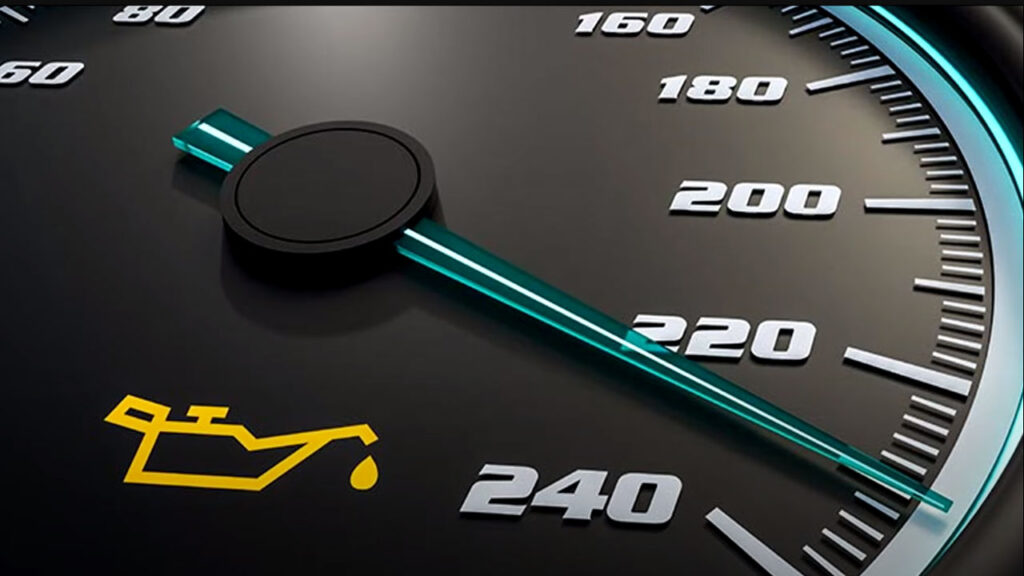Troubleshooting: Car Losing Oil with No Leak or Smoke

The mystery of a car losing oil but no leak or smoke visible can be both puzzling and concerning for any vehicle owner. What is the reason behind it?
Your car’s oil loss without visible leaks may be due to oil consumption, potentially caused by faulty engine components, burning oil, worn-out PCV, worn piston rings and other . If you notice blue-tinted exhaust smoke or consistent low oil levels, seek service to prevent costly engine damage.
Especially for older vehicles with over 100,000 miles. Newer cars under 50,000 miles may only need a quart of additional oil between oil changes.
What Are Many Reasons Why Your Car Could Lose Oil- Explanation
- Burning Oil: Over time, engine components like piston rings and cylinder walls can wear out, leading to oil being consumed as part of the combustion process.
- PCV Valve Replacement: A worn-out PCV (Positive Crankcase Ventilation) valve can also contribute to oil loss. If the PCV valve is faulty, it can lead to increased oil consumption.
- Older Vehicles with High Mileage: If your vehicle has accumulated more than 100,000 miles, it may be more susceptible to oil consumption issues due to natural wear and tear.

What Causes Your Car to Burn Oil?
Several factors can cause your car to burn oil, some more serious than others. Here are the most common culprits:
- Worn piston rings: Over time, they can wear down, creating gaps that allow oil to leak in and burn.
- Worn valve seals: These seals prevent oil from leaking down the valve stem into the combustion chamber. Worn seals can lead to similar symptoms as worn piston rings.
- Damaged gaskets: The gaskets between the engine block, cylinder head, and oil pan can become brittle and leak over time. This can allow oil to escape and burn externally, or leak into the combustion chamber.
- Faulty oil filter: A loose or improperly installed oil filter can allow oil to leak out.
- Damaged oil pan: The oil pan, located under the engine, can be punctured or dented, causing oil to leak.
- Loose filler cap: A loose or missing filler cap won’t create a proper seal, allowing oil to seep out.
- Improper oil type: Using oil that’s too thin for your engine’s specifications can lead to increased oil burn-off.
- Overdue oil changes: Regularly changing your oil and filter helps remove contaminants that can contribute to wear and tear on engine components.
- High mileage: As cars age, engine components naturally wear down, increasing the risk of oil burning.
Car Burning Oil Symptoms
Several symptoms can indicate your car is burning oil.
- Low oil level
- Smoke from the exhaust
- Oil leak
- Reduced engine power and accelerationRough idling
- Increased fuel consumption
- Burning oil smell
- Engine knocking
- Overheating

Bike Losing Oil But No Leak Or Smoke
Bike oil loss without visible leaks or smoke often results from piston and cylinder wear, increasing the gap between them. Regular maintenance and checking for wear can help prevent this issue.
Car Burning Oil Repair Cost
Here’s a breakdown of the potential costs for some common repairs:
1. Simple fixes
- PCV valve replacement: $75-$150
- Oil filter replacement: $25-$50
- Gasket replacement: $50-$200
2. Moderate repairs
- Piston ring replacement: $500-$1,500
- Valve seal replacement: $300-$800
3. Major repairs
- Engine rebuild: $2,000-$5,000
- Engine replacement: $3,000-$8,000
What Are The Reasons For The Sudden Loss Of Oil In Car?
Here are some reasons for the sudden loss of oil in a car:
- Oil leaks due to damaged gaskets or seals
- Overfilling of oil, causing it to overflow
- Engine oil burning due to worn-out piston rings or valve seals
- Oil filter malfunction or clogging
- Oil pan damage leading to leaks
- Faulty oil pressure gauge or sensor
- Frequent short trips causing oil to not heat up and evaporate moisture
Read More How To Quiet Rear Differential Noise: Turning Down The Volume
There Is Engine Oil Consumption No Smoke- Why And Reason
Here are some possible reasons why this might be happening:
- Worn Piston Rings
- Valve Seal Leakage
- PCV Valve Issues
- Cylinder Wall Wear
- Incorrect Oil Viscosity
- High Engine Temperature
- Leaking Gaskets or Seals
- Driving Habits
Engine Oil Disappearing No Leak – Why
- Engine oil disappearing without a visible leak can be a perplexing issue.
- Possible reasons include oil consumption due to engine wear or faulty piston rings.
- A malfunctioning PCV valve can also contribute to oil loss.
- High engine temperatures can cause oil to evaporate, leading to reduced levels.
What Causes Low Engine Oil Level?
Here are some common causes of low engine oil level:

1. Leaks
These can occur from various points in the engine, such as the oil pan gasket, valve cover gasket, or even the oil filter.
2. Oil Consumption
Some engines naturally consume a small amount of oil over time as part of their normal operation.
3. Neglected Maintenance
Failing to change the engine oil at regular intervals can lead to a decrease in oil level.
4. Overfilling
Ironically, overfilling the engine with oil can also result in low oil levels. When the oil level exceeds the maximum capacity, it can froth or foam, reducing its effectiveness and causing a drop in oil pressure.
5. Oil Filter Issues
A clogged or improperly installed oil filter can restrict the flow of oil, leading to low oil levels in the engine.
6. Engine Wear and Tear
As the engine components wear out over time, they may create more friction, leading to increased oil consumption.
Read Also Oil Catch Can With Breather Or Without
Why Does My Car Run Out Of Oil So Fast?
Here’s a breakdown of the possible culprits:
- Worn Piston Rings: Worn rings create gaps, allowing oil to leak in and burn, though smoke might not be apparent depending on driving conditions.
- Valve Stem Seals: Worn seals leak oil into the combustion chamber, where it burns without necessarily producing smoke.
- Damaged Gaskets: Worn gaskets between engine components can leak oil internally, allowing it to burn without smoke.
- Faulty Oil Filter: A loose or improperly installed filter can leak oil externally.
- Damaged Oil Pan: Punctures or dents in the oil pan can cause leaks.
- Loose Filler Cap: An unsealed filler cap allows oil to seep out.
- Improper Oil Type: Oil too thin for your engine’s specs can burn off more easily.
- Overdue Oil Changes: Dirty oil contributes to wear and tear, potentially increasing oil consumption.
- High Mileage: Engine components naturally wear with age, raising the risk of oil burning.
Oil Level Dropping No Leaks- Reasons
While you mentioned no visible leaks, there are still several reasons why your oil level might be dropping even without external signs:
- Internal leaks
- Worn piston rings
- Valve stem seals
- Damaged cylinder walls
- PCV valve issues
- Turbocharger problems
- Improper oil type
- High mileage
Honda Accord Losing Oil No Leak Reasons
Here are some possible reasons why a Honda Accord might be losing oil without any visible leaks:
- Worn Piston Rings: Aging piston rings can allow oil to bypass and burn in the combustion chamber.
- Valve Seal Issues: Faulty valve seals can lead to oil entering the combustion process.
- PCV Valve Problems: A malfunctioning Positive Crankcase Ventilation valve can cause oil consumption.
- Oil Pan Gasket Leaks: A leaking gasket might not always leave noticeable puddles.
- Overfilling: Excess oil can lead to oil consumption.
Car Losing Oil And Smoking – Why And Solution
Here’s a breakdown of the possible reasons and solutions:
Reasons for oil loss and smoking
- Worn piston rings: These rings seal the combustion chamber, preventing oil from entering. Worn rings create gaps, allowing oil to leak in and burn, causing blue smoke from the exhaust.
- Damaged valve stem seals: These seals prevent oil from leaking down the valve stem into the combustion chamber. Worn seals lead to similar oil burning and blue smoke.
- Leaking gaskets: Worn gaskets between engine components can leak oil internally, allowing it to burn and potentially create smoke depending on the location of the leak.
- Faulty PCV valve: A stuck or faulty PCV valve can cause excessive crankcase pressure, forcing oil past seals and into the combustion chamber, leading to smoke.
- Turbocharger problems: If your car has a turbocharger, worn seals or internal damage can allow oil to leak into the intake system and be burned in the engine, causing smoke.
- Overdue oil changes: Dirty oil contributes to wear and tear, potentially increasing oil consumption and burning with smoke.
Solutions
- Seek professional diagnosis: Don’t ignore the problem. A mechanic can perform tests like compression checks, leak-down tests, and PCV valve inspections to pinpoint the exact cause.
- Repair based on diagnosis: Depending on the issue, repairs might involve:
- Replacing worn piston rings: A more involved and expensive repair.
- Replacing valve stem seals: Can be less expensive than piston rings.
- Replacing leaking gaskets: Costs vary depending on the gasket location.
- Fixing PCV valve issues: Could be a relatively simple fix.
- Addressing turbocharger problems: Can be costly depending on the extent of the damage.
Effect Of Engine Oil Shortage In Car
- Increased engine wear and tear
- Reduced engine lifespan
- Decreased fuel efficiency
- Potential engine overheating
- Increased risk of engine damage
- Costly engine repairs and replacements
- Impact on vehicle resale value
- Importance of regular oil changes
- Alternatives to traditional engine oil
- Environmental implications of oil shortage
How Often Should You Change Your Oil?
When it comes to changing your car’s oil, the general recommendation is every 5,000 to 7,500 miles.
Oil leak Smoke Under Hood
An oil leak causing smoke under the hood is often due to a damaged gasket, worn-out seals, or a loose oil filter. Prompt inspection and repair are crucial for safety.

Read More About A Comprehensive Guide To Engine Oil Sludge Removal
Oil Leak Smoke Comign Through Vents
Possible Causes
- External leak near air intake
- Damaged internal components
- Faulty PCV valv
Oil Leaks Smoke Test
A smoke test involves introducing a safe, non-toxic smoke into your car’s sealed intake system (or crankcase for internal leaks) and pressurizing it. Leaks will allow the smoke to escape, making them easier to pinpoint visually.
Oil Leak White Smoke Under Hood
Repairs might involve:
- Replacing the head gasket: The most common fix, requiring specialized tools and expertise.
- Addressing cracked components: Welding or replacing cracked elements like the cylinder head or block can be expensive and complex repairs.
- Fixing intake manifold gasket leaks: Replacing the gasket can be less invasive than head gasket repairs.
Oil Leak Causing Smoke
Stop engine, don’t drive. Smoke means burning oil, not good. Mechanic time asap to diagnose and fix before major damage. Remember, safety first!
Oil Leak Black Smoke
Burning oil creates that dark plume. Worn engine parts or faulty seals are likely culprits. Stop the engine to avoid fire risk and don’t drive! Seek mechanic help ASAP for diagnosis and repair.
How Do You Fix A Car Burning Oil?
Fixing a car burning oil depends on the specific cause, which can range from simple to complex. Here’s a general overview:
Repair options (based on diagnosis):
- Minor leaks: Replacing gaskets or valve cover seals might be relatively affordable solutions.
- Worn piston rings: This requires engine disassembly and ring replacement, which can be expensive.
- Valve stem seals: Replacing these worn seals can be less expensive than fixing piston rings.
- Internal damage: Cracked components like cylinder walls might require engine rebuild or replacement, which are major repairs.
How Do I Stop My Engine From Burning Oil?
To stop your engine from burning oil, you can follow these steps:
1. Check for Leaks
Inspect your engine for any oil leaks. Leaking oil can contribute to excessive oil consumption.
2. Maintain Proper Oil Levels
Ensure that your engine has the right amount of oil. Low oil levels can lead to increased oil consumption and potential engine damage.
3. Use the Right Oil
Always use the manufacturer-recommended oil viscosity and type for your engine.
4. Change the PCV Valve
A faulty Positive Crankcase Ventilation (PCV) valve can lead to increased oil consumption. Replace it as per your car’s maintenance schedule.
5. Maintain a Clean Air Filter
A dirty or clogged air filter can affect the air-fuel mixture, leading to poor combustion and increased oil consumption.
6. Avoid Overloading and High-Speed Driving
Drive within recommended weight limits and maintain a moderate speed when possible.
Consider Engine Rebuild or Repair:
If your engine has extensive wear and tear, it may require a rebuild or repair to address the issue of burning oil.
FAQ
Why is my engine oil disappearing without a leak?
Your engine oil may be disappearing due to internal factors such as oil consumption through combustion or a faulty PCV valve, not necessarily a visible external leak.
Why is my car running out of oil so fast?
Your car may be running out of oil quickly due to leaks, worn-out seals, or high oil consumption, which can be caused by engine issues or poor maintenance practices.
What are the 3 causes of oil consumption?
Oil consumption in vehicles can be caused by engine wear, leaks, and improper maintenance.
How much oil loss is normal?
The normal range of oil loss in a vehicle is approximately 1 liter per 1,500 km depending on factors like engine condition and driving habits.
How much oil consumption is normal?
Normal oil consumption for most vehicles falls between 0.05 and 0.3 deciliters (dl) of engine oil per 1,000 kilometers, although some may consume up to 3 dl in specific circumstances.
Is it OK to add oil between oil changes?
Yes, it’s okay to add oil between oil changes if your vehicle’s oil level is low. Regularly checking and topping up oil can help maintain engine health.
How long will 1 Litre of oil last in a car?
In most cars, 1 liter of oil will last for approximately 1,500 kilometers before requiring a top-up or an oil change.
Is it normal for engine oil to decrease?
Yes, it’s normal for engine oil to decrease over time due to consumption and minor leaks. Regular checks and top-ups are essential for engine health.

Conclusion
When faced with the perplexing issue of car losing oil but no leak or smoke, it’s essential to consider various factors that may contribute to this problem.
Oil loss without apparent leaks can be attributed to oil consumption, often caused by aging engine components such as worn piston rings, valve seals, or a malfunctioning PCV valve.
Additionally, high mileage and neglected maintenance can exacerbate the issue.





